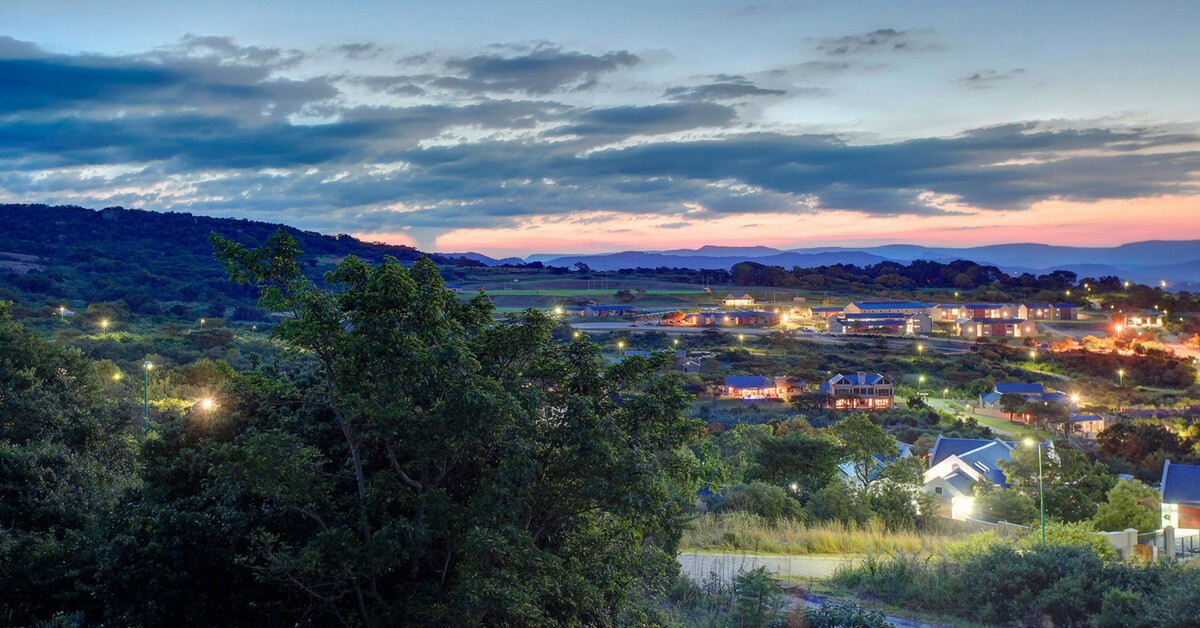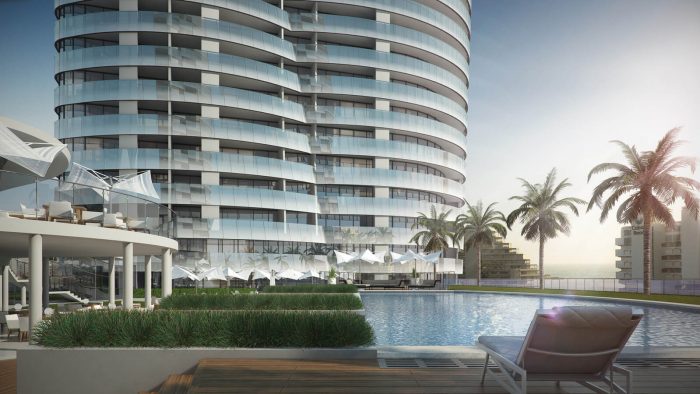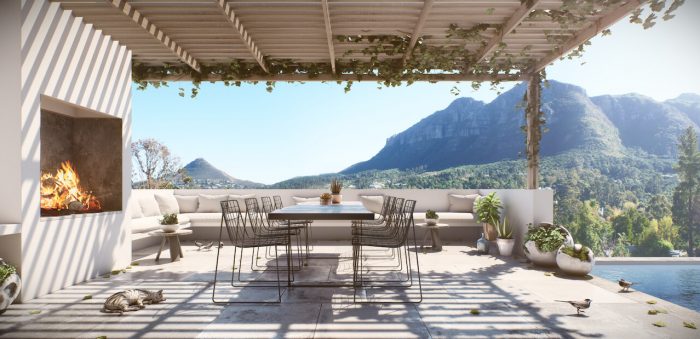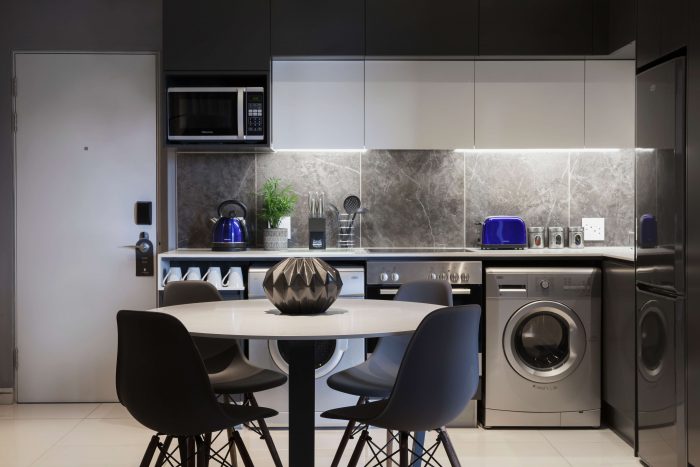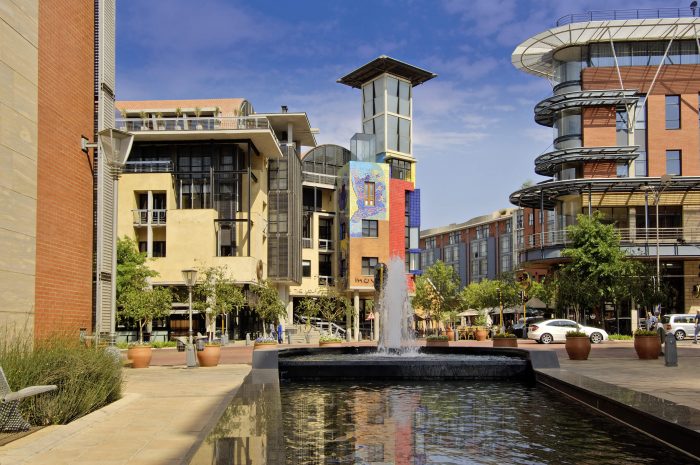Advertisement
Current conditions
‘When promised quick profits, respond with a quick “no”’ says US billionaire Warren Buffet about property investments. Seeff Property Group Chairperson Samuel Seeff seconds that: ‘Property, while an excellent investment, typically requires a holding period of, at least, five to seven years before it really starts accumulating value.’
Sage words in a market that seems to be struggling to steady itself against a backdrop of political uncertainty and economic downgrades, and where the luxury segment – even in Gucci zones like the Atlantic Seaboard – is feeling the heat. While ‘proceed with caution’ may well be the prevailing mantra when looking at investing in Millionaire’s Row, a new generation of first-time buyers determined to gain a foothold in the market is making waves on the more affordable side of the street.
And despite foggy conditions as the Ramaphoria effect wanes, creative investment options are available – as long as you know where to look.
Estate living
Demand for secure and convenient estate living continues and Rawson Property Group MD, Tony Clarke, suggests one with amenities such as a gym, facilities, schools and leisure activities like a club house, restaurants and sporting facilities. ‘Research new developments that sell for more reasonable prices and appreciate in value quickly.’ he says. Estates with green features like water saving systems and solar panels are increasingly desirable.
Advertisement
Size matters
Small is the word as two-bedroom and smaller units continue to see the lion’s share of the action. Sectional title is significantly outperforming growth in freehold prices, according to Sandra Gordon, Pam Golding Properties’ senior research analyst.
Small sectional prices rose by an average of 8.45% last year, while large freehold rose by just over 3%. That’s a significant outperformance,’ she says.
‘Affordability considerations make sectional title properties the preferred entry point for first-time buyers, so demand is likely to remain brisk for the foreseeable future,’ says Gordon. Developers are consistently answering the call. The first five months of 2018 have seen an average of 4% growth in prices. ‘Only the under-R1-million category continues to accelerate – averaging 7.2%,’ says Gordon. ‘The other price bands are all showing slowing growth – with the weakest performance in the R3-million-and-above sector.’ She says the average price for first-time buyers is estimated at R939,000.
Samuel Seeff agrees the mid-market below R2 million remains the most active. While buying a two-bedroom flat of around R750,000 to R850,000 is likely to bring in a monthly rental of R7,000 to R8,000, the old saying caveat emptor (buyer beware) applies.
While the Gauteng market above R5 million has seen a small improvement, Cape sales above R8 million, and above R18 million on the Atlantic Seaboard, are showing strain, he says. That’s while the holiday and investment market has also flattened, as has semigration.
Meanwhile, Kwazulu-Natal is perking up – predominantly along the North Coast. Sandra Gordon says: ‘With its idyllic yearround climate, this region is benefiting from the growing retirement market, as well as buyers who previously would have considered Cape Town but find affordability a deterrent.’‘The economic powerhouse of Gauteng is also showing signs of recovery – particularly in the north and in Pretoria.’ ‘While we don’t have definitive reasons for this, it’s likely that the appeal the area holds for first-time buyers, namely affordability and the development of mixed-use properties, is ideally suited to the lifestyle of young professionals.
‘While the middle-income areas tend to be best for rental investments,’ says Seeff, ‘this sector of the market is also more affected by economic fluctuation, and could pose a financial risk regarding good tenants, timeous payment of rents, and maintenance of the property.’
Belle of the ball moves town
The former belle of the property market ball, Cape Town, has seen a levelling, as the busiest sector of the market remains below R1.8 million in the Cape, says Seeff. ‘The upper end has seen a notable slowdown.’
Think out the box
Rather than sticking to the tried-and-tested, safe-and-sure options our parents would have recognised, perhaps it’s time to look at some less usual alternatives.
Student living
While requiring careful vetting and some vigilance – you’re dealing with the odd wild child, after all – two-bedroom flats in secure complexes with parking close to hangouts and amenities are in demand. Says Seeff: ‘Location is important. Look at the “academic belts” – Stellenbosch, Cape Town’s southern suburbs close to UCT, Zonnebloem in the CBD close to CPUT, and Melville or Auckland Park close to Johannesburg’s Wits University.’ Gordon suggests thinking about converting houses that are then let out per room, giving investors significantly greater returns compared to a single lease over the property. ‘Studies show in mid-2016 there was an estimated 216,000-bed shortage at our universities.’
Retirement Living
Baby boomers are not going gently into middle age, preferring retirement estate living rather than ye old-age home option, ‘to enjoy estate amenities while having access to medical care,’ says Gordon. People are living considerably longer while staying more active, so this is a new market, she says.
Seeff says an option for the small investor is to buy a retirement property and rent it out. It gives you an opportunity to earn some returns on it for future savings, and many older people look for rental options for retirement.’
Sectional title hotel suites
Unlike timeshare investments, sectional title hotel suites offer full-title ownership to purchasers. Tony Clarke says this offers similar opportunities as any buy-to-let investment, ‘but comes with significantly reduced management requirements’.
‘One of the biggest benefits of hotel suite ownership is that it’s a fully managed asset. All day-to-day maintenance, repairs, marketing and letting challenges are handled by the hotel’s management team while units generate income.’ Location and good management is key, he stresses.\
Sectional title offices
An option for small business owners and professional services firms like lawyers or accountants is to invest in a good area to house their operations rather than renting. ‘Sectional title offices are becoming popular in the office nodes in the northern suburbs of Johannesburg and Durban,’ says Pam Golding Commercial’s Mark Latham. The price range varies but you’re looking at about R25,000 per square metre. Any commercial venture needs caution – in economic downswings vacancy rates increase and, unlike residential property, tenants’ requirements may be specific. Location is as important as when investing in residential property. ‘Owning rather than renting can be a more expensive option for commercial space, and capital appreciation of the property is not always guaranteed,’ cautions Latham.
Stacking
Property developer FWJK has pioneered a co-development model: selling space to investors on an ‘at cost’ basis in their commercial, residential, retail and industrial developments in major cities around South Africa. In their residential developments, for example, investors are invited to buy stacks – several apartments, which can include parking bays and even storerooms – starting from about five units. A 25% deposit secures the investor’s purchase. Investors have the option of selling the units on completion, or renting them out. A small investor who can’t afford the starter pack of five units can team up with other partners, which is called ‘bussing’, says Natalie Albrecht, FWJK development manager, Johannesburg. ‘This model has seen annualised ROIs of up to 50% for our investors.’
Mixed use
Mixed-use developments continue to be popular, says Gordon. ‘Developments, such as Melrose Arch in Johannesburg, or Umhlanga Arch in Durban, feature mainly in key urban growth nodes in metropolitan areas where occupants can live, work and play in a secure environment – and avoid hours in traffic.’
Shipping containers
Container homes are – at around R100,000 a container – an affordable housing alternative. Leon Breytenbach, National Manager of the Rawson Property Group’s commercial division, says: ‘This unconventional trend is here to stay.’ It has, he says, ‘gained popularity within residential as well as commercial property.’ You can buy to let out as a temporary office or small shop, or invest in a home solution. New container-based student accommodations are being built in Auckland Park and downtown Joburg on Eloff Street. In Joburg’s Maboneng precinct, a development called Drivelines Studios is a multi-storey apartment block made up of multiple containers.
Bottom line
Ultimately, South African property, and particularly secure residential and mixed use developments, has historically proven to be an excellent investment: just do your homework and don’t get caught up in hype.
